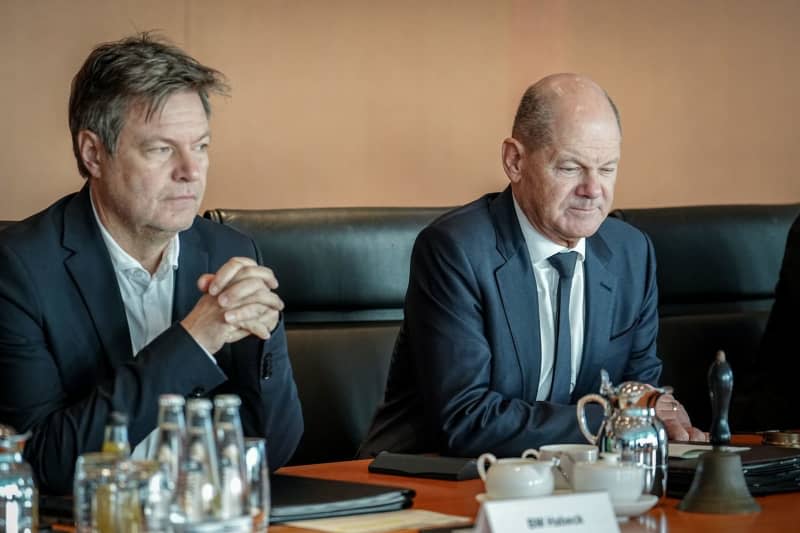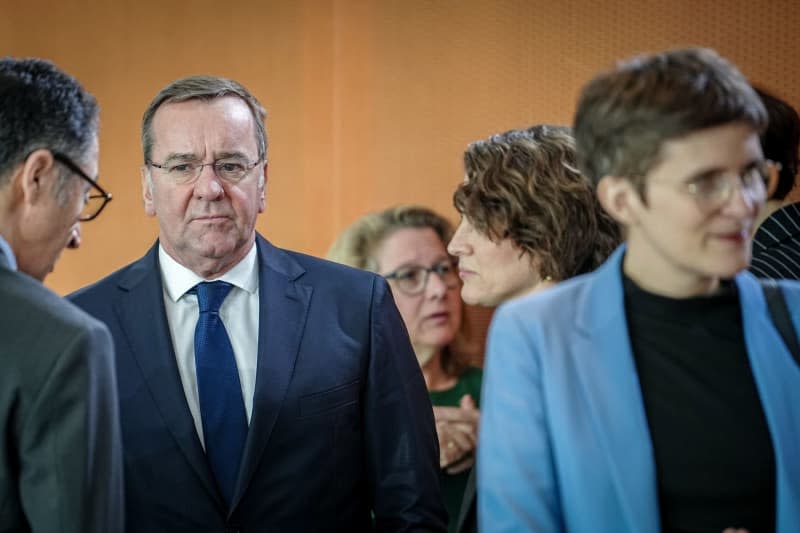German government faces criticism over lack of power-plant strategy

- Oops!Something went wrong.Please try again later.
- Oops!Something went wrong.Please try again later.
- Oops!Something went wrong.Please try again later.
The German government has not yet reached an agreement on a strategy for the construction of hydrogen-capable gas-fired power plants, dpa learned from sources in government on Wednesday.
On Tuesday evening, Chancellor Olaf Scholz, Vice-Chancellor Robert Habeck and Finance Minister Christian Lindner met for consultations.
Habeck had emphasized the need for a power-plant strategy before the summit meeting and expressed hope that a decision would be reached quickly.
The energy sector has long been waiting for a strategy for the construction of hydrogen-capable gas-fired power plants by 2030, intended to provide electricity generation during periods when there is little renewable solar and wind power.
However, energy companies have so far shied away from investing because the new power plants are not expected to be profitable.
The current government shut down Germany's last remaining nuclear power plants in 2023, a policy championed by Habeck's Greens but also backed by former chancellor Angela Merkel, a centre-right Christian Democrat (CDU).
The top executive of German electric utility EON criticized the lack of a power-plant strategy, saying that the coalition government was instead preoccupied with side issues such as a ban on gas boilers and how to define so-called green hydrogen.
"Two years after the coalition took office, we still lack an energy master plan to lead our industrialized nation into the year 2030 in terms of energy," Leonhard Birnbaum said.
"Following the phase out of nuclear energy, there is still no answer as to where the backup is to come from and how capacities are to be brought onto the market," he said.
Birnbaum expressed disbelief that Germany might be left relying more heavily on coal to address electric generation capacity issues despite deep concerns about global warming.
Scholz's coalition government had originally agreed to "ideally" bring forward plans to phase-out Germany's remaining coal-fired power plants by eight years to 2030 in order to reduce carbon emissions.
A deal to end coal mining in the western Rhineland coalfields by 2030 has already been struck, but the proposal remains deeply controversial in the coalfields of the Lausitz region in eastern Germany.
Government spokesman Steffen Hebestreit said in Berlin on Wednesday that the talks between Scholz, Habeck and Lindner had gone well and would continue.
Hebestreit said there must be a "mix" of different kinds of power plants, and that he expected talks on the strategy to come to a conclusion "soon."
Habeck has previously spoken out in favour of state subsidies for new hydrogen-capable gas power plants, which could run into the billions of euros.
An incentive system that rewards operators for maintaining power plant capacities may also be possible, according to Habeck.
Funding subsidies may be a challenge, however, after Germany's Constitutional Court struck down coalition plans to use borrowed money to fund long-term climate and infrastructure projects, following a lawsuit by the conservative CDU/CSU opposition bloc.
The court decision plunged Scholz's government into a serious budget crisis and has scrambled ambitious investment plans.



